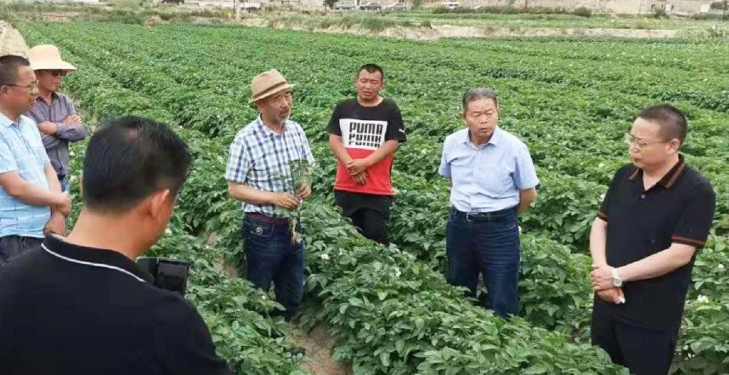In response to the late blight disease of potatoes, the AsiaBlight Network formed a coalition of farmers, scientists, and government officials to develop an integrated approach to managing, and eventually eradicating, late blight disease with an aim to improve nutrition and food security for billions throughout Asia.
Thanks to a massive collaborative research effort, AsiaBlight has developed an evidence-based four-pronged approach to controlling late blight disease:
- Using late blight monitoring and warning systems for accurate prediction and forecasting;
- Monitoring species resistance to determine the first timing of fungicide application;
- Evaluating fungicide effectiveness in the field to guide the selection and use of the types of fungicides for controlling costs and reducing fungicide doses; and
- Monitoring fungicide efficacy to plan the next application period.
However, despite the proven value of this approach, the most important step remains taking these ideas and sharing them with farmers through training and capacity building activities.
Over the course of four months in early 2021, the AsiaBlight Network, led by researchers from the CIP-CCCAP Center in Beijing, visited five Chinese provinces with trainings tailored to address specific needs of farmers in these regions.
With these training sessions completed, the AsiaBlight Network will continue routine informational meetings with the farmers in these locations to understand the how the trainings are impacting potato growth and the sustainability of future yields.







